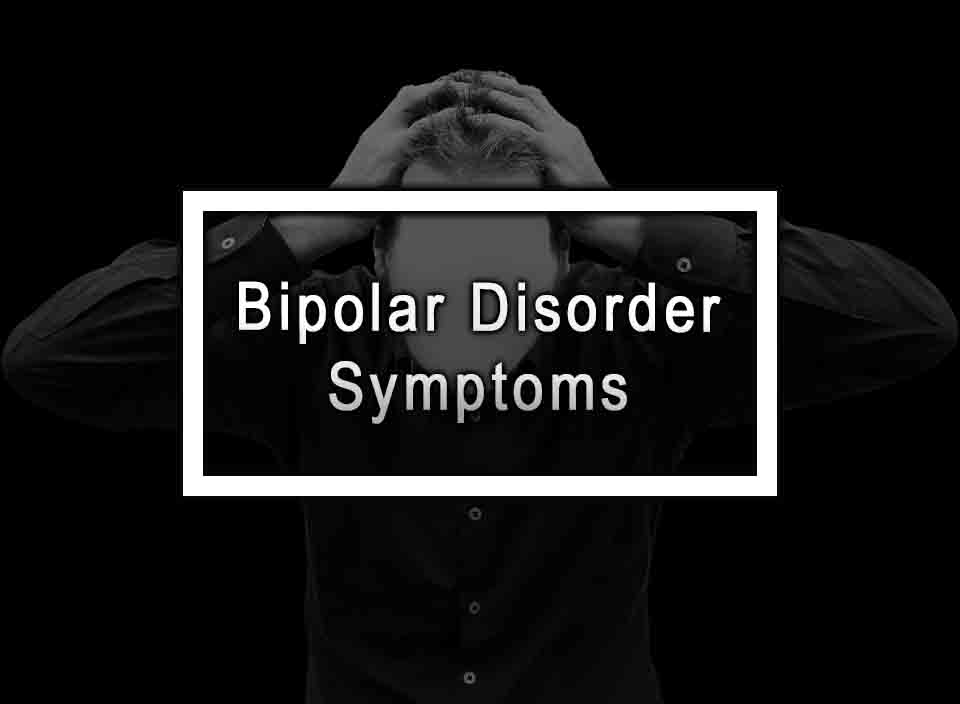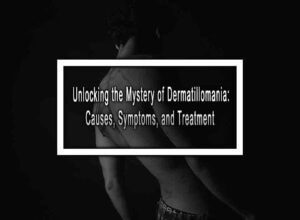Here Are Some Bipolar Disorder Symptoms

Bipolar disorder, also known as manic-depressive illness, is a mental health condition that affects millions of people worldwide. This disorder is characterized by extreme mood swings, ranging from episodes of mania, where the individual experiences extreme happiness and energy, to episodes of depression, where the person may feel sad, hopeless, and lethargic. These mood swings can be intense and disruptive, affecting the person’s ability to function in everyday life. In this article, we will discuss bipolar disorder symptoms, how it is diagnosed, and the available treatments.
Bipolar disorder symptoms can vary from person to person. The key symptoms of the disorder are episodes of mania and depression. These episodes can last for days, weeks, or even months, and can occur in different patterns. Some individuals may experience more manic episodes, while others may experience more depressive episodes. Bipolar disorder symptoms can be divided into two categories:
Manic Symptoms

Manic episodes are characterized by a state of high energy, euphoria, and overactivity. During a manic episode, the individual may feel extremely happy, confident, and full of energy. They may talk excessively, have racing thoughts, and engage in risky behaviors, such as drug use or gambling. Some other symptoms of manic episodes include:
- The decreased need for sleep
- Impulsiveness
- Grandiose beliefs or delusions
- Irritability
- Agitation
Depressive Symptoms

One of the bipolar disorder symptoms is Depressive episodes, characterized by a state of low mood, energy, and motivation. During a depressive episode, the individual may feel sad, hopeless, and helpless. They may lose interest in activities they used to enjoy, have difficulty concentrating, and experience changes in appetite and sleep patterns. Some other symptoms of depressive episodes include:
- Feelings of worthlessness or guilt
- Suicidal thoughts or behaviors
- Fatigue or loss of energy
- Difficulty making decisions
- Physical symptoms, such as headaches or stomachaches
Diagnosis of Bipolar Disorder
Diagnosing bipolar disorder can be challenging, as the symptoms can be similar to those of other mental health conditions such as depression or anxiety. A thorough evaluation by a mental health professional is necessary to diagnose bipolar disorder. The diagnostic process typically involves a physical exam, lab tests, and a psychiatric evaluation. The mental health professional will ask about the person’s symptoms, medical history, and family history of mental health conditions. They may also use diagnostic tools such as the Diagnostic and Statistical Manual of Mental Disorders (DSM-5) to make a diagnosis.
Treatment of Bipolar Disorder
Bipolar disorder is a chronic condition that requires ongoing treatment. The treatment approach will vary depending on the individual’s symptoms and the severity of the disorder. The primary treatments for bipolar disorder include medication, therapy, and lifestyle changes.
Medication

Medication is often the first line of treatment for bipolar disorder. The most commonly prescribed medications for bipolar disorder are mood stabilizers, such as lithium, and antipsychotic medications. These medications help to control the symptoms of mania and depression and prevent future episodes.
Therapy

Therapy is also an essential component of treating bipolar disorder. Cognitive-behavioral therapy (CBT) and psychotherapy can help manage the symptoms of bipolar disorder. These therapies can help individuals understand their symptoms, develop coping skills, and improve their relationships with others.
Lifestyle Changes

Lifestyle changes can also help manage bipolar disorder. These changes can include getting regular exercise, eating a healthy diet, and avoiding drugs and alcohol. Getting enough sleep and maintaining a regular sleep schedule can also be beneficial in managing the symptoms of bipolar disorder.
Conclusion
Bipolar disorder is a complex mental health condition that can be challenging to diagnose and treat. Bipolar disorder symptoms can be disruptive and can affect the person’s ability to function in everyday life. However, with the right treatment approach, individuals with bipolar disorder can manage their symptoms and improve their quality of life. If you or someone you know is experiencing symptoms of bipolar disorder, it is essential to seek help from a mental health professional. With the right treatment and support, individuals with bipolar disorder can lead fulfilling and productive lives.
Bipolar Disorder Symptoms FAQs
Here are the most common questions about bipolar disorder symptoms.
1. How long do these episodes usually last?
The duration of these episodes can vary for each individual, but manic episodes tend to last at least a week, while depressive episodes can last up to several months.
2. Can bipolar disorder be treated?
Yes, bipolar disorder can be treated with a combination of therapy and medication. It is important to work with a healthcare provider to find the treatment plan that is best for you. Additionally, practicing healthy habits like getting enough sleep, exercising, and limiting stress can also be beneficial in managing symptoms.
3. What causes bipolar disorder?
The exact cause of bipolar disorder is not known, but it is likely a combination of genetic and environmental factors. Research indicates that imbalances in neurotransmitters in the brain, such as dopamine and serotonin, play a role in bipolar disorder.
4. Can children or adolescents develop bipolar disorder?
Yes, bipolar disorder can develop in children and adolescents. However, it can be challenging to diagnose in younger individuals as their symptoms may present differently than in adults. It is important to seek professional support if a child or adolescent is experiencing mood swings or other symptoms of bipolar disorder.
5. Can bipolar disorder affect relationships and work?
Yes, untreated bipolar disorder can negatively impact relationships and work. Extreme mood swings can make it challenging to maintain stable relationships, leading to strained partnerships and difficulty keeping a job. Seeking treatment and managing symptoms can help individuals with bipolar disorder maintain healthy relationships and succeed in their careers.
6. Can individuals with bipolar disorder live normal lives?
Yes, individuals with bipolar disorder can live normal lives with proper treatment and management of symptoms. Working with healthcare providers to find the right treatment plan and practicing healthy habits can significantly improve quality of life and reduce the risk of negative outcomes.












